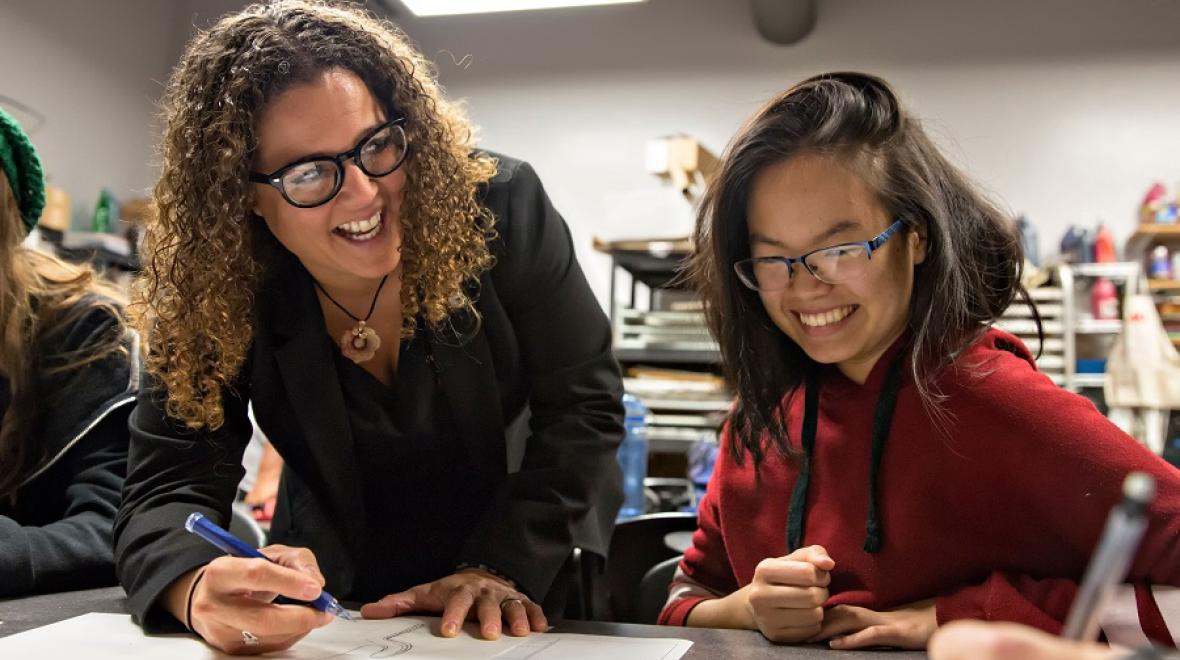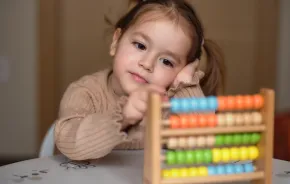
Photo:
Courtesy BASIS Independent Schools
Editor's note: This article was sponsored by BASIS Independent Bellevue.
When it comes to teacher collaboration in the classroom, a new private school set to open for fall 2022 in Bellevue takes a unique and empowering approach. At BASIS Independent Bellevue, homeroom teachers pair with content specialists for every subject. It’s a human-resources-intensive approach that drops student-teacher ratios and increases the options for personalized instruction, enabling classes to work above grade level without leaving any students behind.
BASIS Independent Bellevue, serving grades 2–7 with plans to expand through grade 12, is the latest campus to join the BASIS Independent Schools network that spans the United States, China and Thailand. All of its campuses are centered around the internationally recognized BASIS Curriculum, which integrates models and strategies of the world’s top education systems—including Finland, Shanghai and Singapore.
Collaborative teaching
“Co-teaching is an educational term that people throw out a lot, but there are several different styles and ways to co-teach,” says BASIS Independent Bellevue Head of School Elizabeth Thies. There’s team-teaching, where teachers present materials together; where one leads the class and the other assists; or where each teacher takes a group of students working at a different pace. Teachers may set up a station-based classroom where students rotate through activities, or one teacher might teach the class while the other works with individual students who need extra support. At BASIS Independent Schools, the teachers may employ three or four different collaborative teaching models and strategies in a single 85-minute class, depending on the subject and the needs of the students in a particular group.
“Based on their own strengths, they really build the co-teaching model that best fits them. We give our teachers lots of autonomy. We have specific learning goals and objectives, but we never tell our teachers how to teach,” says Thies.
The different co-teaching models provide similar benefits. “There are many access points to the content. Students get to learn within several different teaching styles. Students have different styles of learning, and co-teaching really gives students the opportunity to see concepts in several different ways because you have teachers who have different styles,” says Thies.
Co-teaching also helps to ensure that students don’t get left behind, because there are always two sets of eyes tracking each student’s progress. If a student is struggling, it won’t go unnoticed.
How it works in the classroom
For elementary students in second through fourth grades, BASIS Independent Bellevue uses a model that pairs two different types of teachers for each class throughout the day. Students spend their day with a Learning Expert Teacher (LET) who is comparable to a traditional primary school homeroom teacher. Together with their LET, students move to different classes throughout the day. Each of these classes has a Subject Expert Teacher (SET) who has an advanced degree or firsthand experience in the subject-matter area that they teach and has set up their classroom for that subject.
“You get two brilliant minds putting lessons together, coming up with more creative lessons and problem solving. We have a consistent curriculum but really depend on the teachers to implement it,” says Thies.
In the LET/SET model, the LET is the pedagogy expert who serves as a point of contact for families and an advocate for each of their students. Because they spend all day with their students, LETs see them in a holistic way that informs individual subjects. For example, the LET can identify when difficulty solving word problems is linked to reading comprehension rather than an understanding of math concepts.
Subject Expert Teachers are true experts in their topic area and are responsible for the content of the lessons, enabling students to learn subject matter above grade level in an age-appropriate way. Instead of a homeroom teacher spending about 20 percent of their time planning lessons for each subject, the SET is completely dedicated to teaching their core subject to a particular age group. They are also available after school for “student hours,” which are designated times when students can visit their classrooms to practice skills and get extra help with tough topics.
“Student hours are packed,” says Thies. Getting extra help from the teacher is a source of shame at many schools, but the teachers at BASIS Independent Schools try to make student hours fun. Teachers use age-appropriate math and word games to reinforce skills and push kids beyond grade-level apprehension. “We celebrate mistakes as part of the learning process. The goal of the primary years is to create a love of learning.”
Empowering teachers
“We want teachers to be enthusiastic, because that passion is contagious. Kids get excited about learning when they see that their teachers love it. So, we give them resources and let them choose what to do with them,” says Thies. But even with a lot of freedom, the system is not simple. Each LET works with nine different subject specialists during the course of a week.
“It takes a lot of work to come together. Collaboration time is built into teachers’ schedules,” says Thies.
But the teachers love it. “This model makes teachers better because they learn from each other. There’s natural growth and they excel.” Aside from the learning that happens organically through collaboration with peers who have different expertise and approaches, teachers at BASIS Independent Schools complete a co-teaching training program before taking over their classes. Ongoing professional development in co-teaching methods takes place on campus.
Co-teaching outcomes
“The biggest advantage is knowing our students exceptionally well and specializing to the group,” says Thies.
In an era that celebrates the idea of doing more with less, the BASIS Independent Schools collaborative teaching model dedicates more resources to students. Students who receive attention and support from more adults and who are more closely observed are more likely to be offered needed interventions. The dynamics of collaborative teaching create a very catered education experience for each group of students that results in better student outcomes. Sometimes more is more.
BASIS Independent Bellevue is accepting applications. Visit the website to learn more.
|
Sponsored by: |
 |











